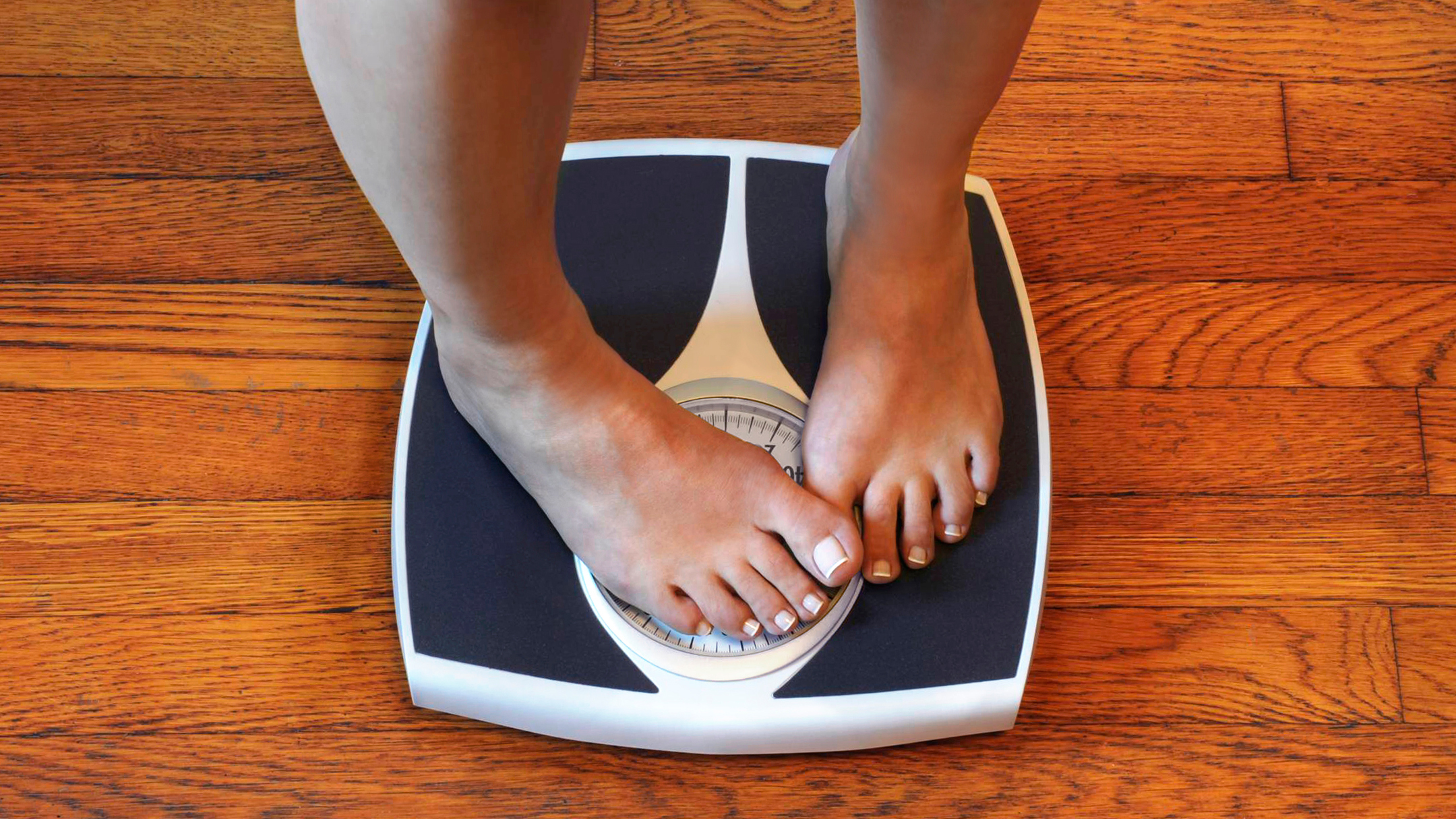Is weighing yourself doing more harm than good?
Should you step off the scales? Here's why weighing yourself too often can be damaging


How often do you weigh yourself? For many people, weight is an easy indicator whether you're hitting your fitness goals, sticking to your portion size guide and following the best exercises for weight loss. Even the term "weight loss goals" suggests we should be keeping an eye on the best bathroom scales to monitor our progress
However, be wary of setting too much stock in how much you weigh on any given day, as sometimes the scales can be disingenuous. Depending on hydration, salt intake, whether you've had a bowel movement and so on, your weight naturally fluctuates day-to-day. In addition, if your exercise routine is helping you to develop muscle, the scale might stay the same, leading you to think you're not improving.
This is a straight-up lie. Muscle is very dense, weighing as much as fat while taking up far less space. By putting on a bit of muscle, you might weigh as much as you used to, but your body composition (the ratio of fat to muscle in your body) will have changed. You'll be fitter, stronger and healthier than you were before, but your actual weight may not have changed that much.
Bodybuilder and TikTok phenomenon Noel Deyzel recently took to social media to dispel the myth that weighing yourself every day is necessary. He tracks his progress through a combination of weight, pictures and measurements to get a more complete picture. Check out the video here:
Watch Noel Deyzel's "stop weighing yourself" video here:
One study from the University of Minnesota looked at repetitive self-weighing, and found negative psychological effects even though weight management improved. The study authors write "themes that emerged [during the study] included relationships between self-weighing and negative outcomes for women and younger individuals, and lack of a relationship or positive outcomes for overweight, treatment seeking individuals."
Weight can be a great starting point when it comes to measuring fitness, but it's one metric among many, not the be-all and end-all. The best bathroom scales support this, with modern smart scales like the Salter Dashboard Analyser giving you a body fat percentage and body water percentage readings, to get a more accurate picture of your health.
Don't let a number on the scale demotivate you, or create an unhealthy relationship with your weight: the human body bloats, shrinks, gains and loses weight all the time of its own accord. Continue living a healthy, balanced, sustainable lifestyle, tracking your progress in several different ways, and you'll continue making progress.
Get the Fit&Well Newsletter
Start your week with achievable workout ideas, health tips and wellbeing advice in your inbox.
Matt Evans is an experienced health and fitness journalist and is currently Fitness and Wellbeing Editor at TechRadar, covering all things exercise and nutrition on Fit&Well's tech-focused sister site. Matt originally discovered exercise through martial arts: he holds a black belt in Karate and remains a keen runner, gym-goer, and infrequent yogi. His top fitness tip? Stretch.
-
 I did 30 minutes of walking yoga every day for a month—here's what I learned
I did 30 minutes of walking yoga every day for a month—here's what I learnedThe daily dose brought more than just peace and calm into my life
By Lou Mudge
-
 Do your gut a favor with this dietitian's gut-friendly veggie-filled fried rice recipe
Do your gut a favor with this dietitian's gut-friendly veggie-filled fried rice recipeKeep your tummy happy with this flavorful twist on a favorite
By Lou Mudge